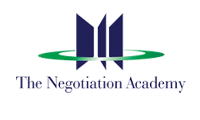| Organisational Sales Process Negotiations |  |
| Learn how to enhance the sales process negotiations strategy of your organisation. Increase your negotiator capability by using the support tools to achieve a better result. |
As long as the human species has existed, the art and science of negotiations has constantly been evolving. In this present era, negotiators have concentrated on the interpersonal interaction of negotiators as the primary means of measuring the success of a negotiation.
In modern times though, it has become apparent that the interpersonal dimension of negotiations is only a single facet of an overall competent negotiation. Only by taking the whole approach to negotiations will we derive the optimum benefit.
More specifically, this clearly indicates that negotiations must be more comprehensive than simply to outsmart our counterparts either because we possess a knack for effective negotiation, or because we are unscrupulous enough to employ all manner of tactics to advance our negotiation objectives.
Any organisation can greatly enhance their negotiated results by implementing an all-inclusive organisational approach to negotiations. This will result in a uniform capability in negotiations.
When mapping out new territory, it is often beneficial to find some reference points along the way to aid the process. Perhaps the most constructive reference that can be used in creating an organisational negotiations capability is to closely examine the sales discipline.
Over the past couple of decades, the most successful organisations have formalized and embedded best practices into their sales discipline and witnessed incredible results. Sales representatives are no longer viewed as individuals with the "gift of the gab". They are accepted and seen in many organisations as consummate professionals who adhere to a disciplined, flexible but very professional sales strategy and process.
Organisations no longer rely solely on the information obtained by one or two individuals to achieve their sales targets. Rather, by employing a formal sales strategy and process, the organisation now has the capacity to create the structure required to build an enterprise wide sales capability. Sales personnel are trained and armed to support the sales strategy and process of the entire organisation.
Likewise, organisational entities can establish a negotiations capability by developing a formal structure and process within the organisation. Interpersonal interaction in the negotiation context is still important and paramount, but this should be addressed within the organisational approach as a whole to achieve the best results. The negotiation strategy of any organisation should lend support to its sales and purchasing strategies, which in turn should be supporting the business strategy.
When a negotiation strategy has been defined, then the support process can be developed and all the resources utilised in negotiations can be accordingly empowered.
The effectiveness of enterprises' negotiation capability will now manifest itself in the gains achieved across the divisions - better deal margins in sales, savings in purchasing budgets, reductions in overall litigation costs etc.
Aside from the apparent advantages that are achieved at the organisational level, consider the impact on individual negotiators. Negotiators are no longer simply given incentives to close deals, they now have the choice to walk away from bad agreements for the company without the threat of being personally penalised.
Negotiators can now utilise tools to help them achieve the best possible results from their negotiation interactions.
Negotiation process based tools include a valuable orientation that focuses on preparation to guarantee that all crucial information is considered. A detailed organisational review forms the basis of the tool set. This leads on to a specifically defined BATNA (Best Alternative To a Negotiated Agreement) analysis done from the perspective of all participants.
After we have examined all the respective BATNA's we turn to our Ideal Deal Analysis so that we can visualise the best possible deal that could happen for all parties involved in the negotiation.
When the negotiator or team is in possession of all this information, only then can we appreciate how tactics and slight of hand are inappropriately misused. These derogatory tactics are now rendered as ineffective against the negotiator who applies a rigorous process to his/her negotiation endeavors.
Naturally, we must be diligent and pay attention to themes such as setting the appropriate climate for negotiations, establishing common ground and probing for interests. The only difference is that the negotiator who applies this negotiation model is no longer solely dependent on these "soft" tools to achieve negotiation success.
The negotiation strategy and process within an organisation is strengthened further by a dedicated maintenance function. By developing an organisational wide negotiations knowledge base and perhaps also including an organisational negotiation centre of excellence you can enhance the momentum to ensure a best practice approach to negotiations. These negotiation maintenance enhancements will allow the organisation the ability to constantly refine its approach to negotiations. At the same time this will ensure that all the organisational's negotiators are at the cutting edge of developments.
The path to create an organisational capability in negotiations is regrettably one that has only lately been laid out and there are still many barriers to surmount. The benefits received by those early pathfinders should be truly rewarding indeed.
Back to Negotiation Articles
We welcome the republication of this page's contents in part or full - we just ask that you include a clean link back to this site, to our www.negotiationtraining.com.au/training/ page.
|
Reader Comments
Average Reader Rating:
share your comment |
|||||||||||
|
|||||||||||






Reader Comments
Average Rating:
Total Comments: 1